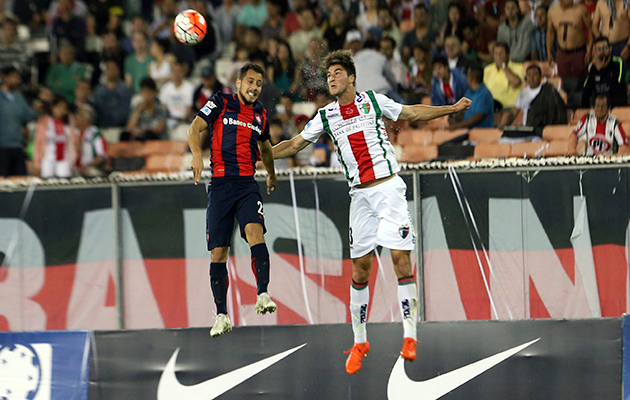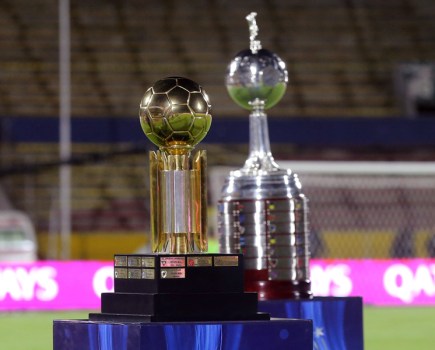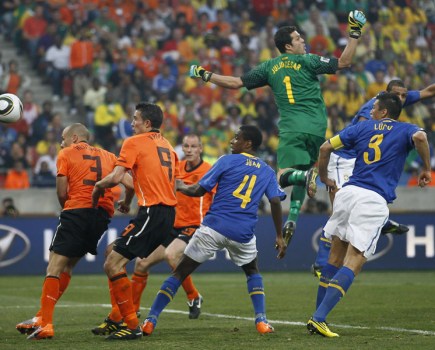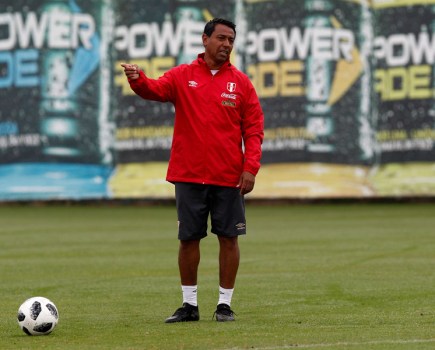Four teams go home and six go on to the second, decisive round of the South American Under-20 Championships – which can hardly be worse than the first round.
True, this is a tournament in which sustained quality is too much to ask for. The calendar is simply too gruelling. That first phase, with two groups of five, was completed in a total of ten days. It is asking a great deal to expect players to haul themselves through four games in this timeframe (some had four matches in nine days, other in just seven) – especially as all of this is mere prelude to the next stage, with more fixtures to be fulfilled in under two weeks. In short, then, too many demands are being made on the players.
That, though, is always the case in a competition which takes place every two years. What has made things worse in Ecuador this time is the poor condition of the pitches in Riobamba and Ibarra. Hopefully things will improve now that the action moves to Quito. But the pitch in the Atahualpa stadium is about to get a pounding too, with fifteen games being played on it between tonight and February 11th.
Even bearing in mind the dismal quality of the playing surfaces, there has yet to be much exceptional quality on show. Maybe the real stars will come through strongly now that we have reached the decisive stage, with a title at stake as well as four places in this year’s Under-20 World Cup.
So far, though, it is hard to imagine many, if any, graduates from this year’s crop mounting a challenge to go to next year’s World Cup at senior level. Venezuela have an impressive pair in keeper Wuilker Farinez and central midfielder Yangel Herrera, names that look set for long careers with the senior international side. But barring a miracle Venezuela are not going to be in Russia 2018. Brazil most certainly will be. Uruguay, Ecuador, Colombia and Argentina hope to join them – and their youngsters have five more games in which to make their names and push their claims.
True disappointment, then, is reserved for those who have already been eliminated. In the case of Bolivia, this is hardly a surprise. New senior national team coach Mauricio Soria blasted the physical condition of the squad in the build up to the competition, and a total of four points may well have been more than they expected. It is twice the total of Peru, who yet again showed a lack of mental strength. In their opening match they were seconds away from beating Argentina, and so to go home with two draws and just one goalscorer is disappointing indeed.
Eliminated by a narrow margin, Paraguay can afford to feel a little happier about their performance. Marino Arzamendia looks the best young goalkeeper the country has produced in some time, and the list of promising outfield players is topped by dynamic central midfielder Cristian Paredes. If the primary objective of youth competition is to develop individuals, then Paraguay may in the future be able to look back on this tournament with more enthusiasm.
Chile may not feel the same way. As far as the Chileans are concerned, it is hard to avoid a collective dimension to what they do. Their national team has enjoyed its best ever period at senior level based on a method of play implemented by Marcelo Bielsa and refined by Jorge Sampaoli. Current senior team coach Juan Antonio Pizzi is not from the same school of thought, but there is enough of the Bielsa/Sampaoli methodology in the DNA of the side for it still to be a differential – they defend with a high line, press relentlessly, stay compact and throw men forward.
But during the reign of Sampaoli there was very little contact between senior and youth teams, and it was apparent in Hector Robles’s Under-20 team. They were at no point recognisable as being moulded in the Bielsa/Sampaoli manner. They were not compapct at all. The side were strung out all over the field. Some of the players may have a future – lanky centre back Francisco Sierralta and striker Jeisson Vargas are capable of better than they showed in Ecuador, while busy little left footed support striker Victor Davila looked interesting. But Chile’s capacity to sustain its period of success at senior level now faces two questions; will the coming generation be individually anything like as impressive as Alexis Sanchez, Arturo Vidal and company? And will there continue to be a collective commitment to a bold model of play which has served them so well?







